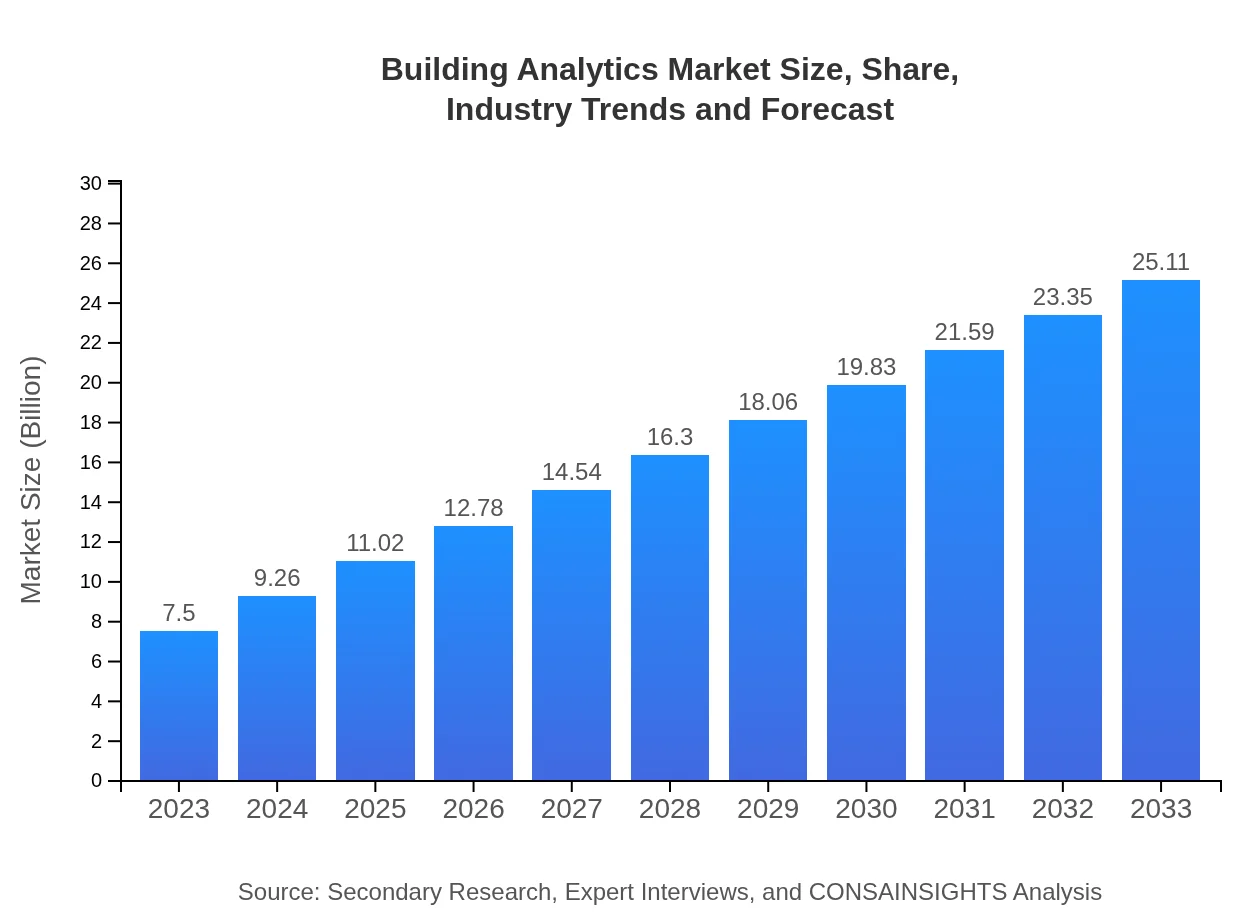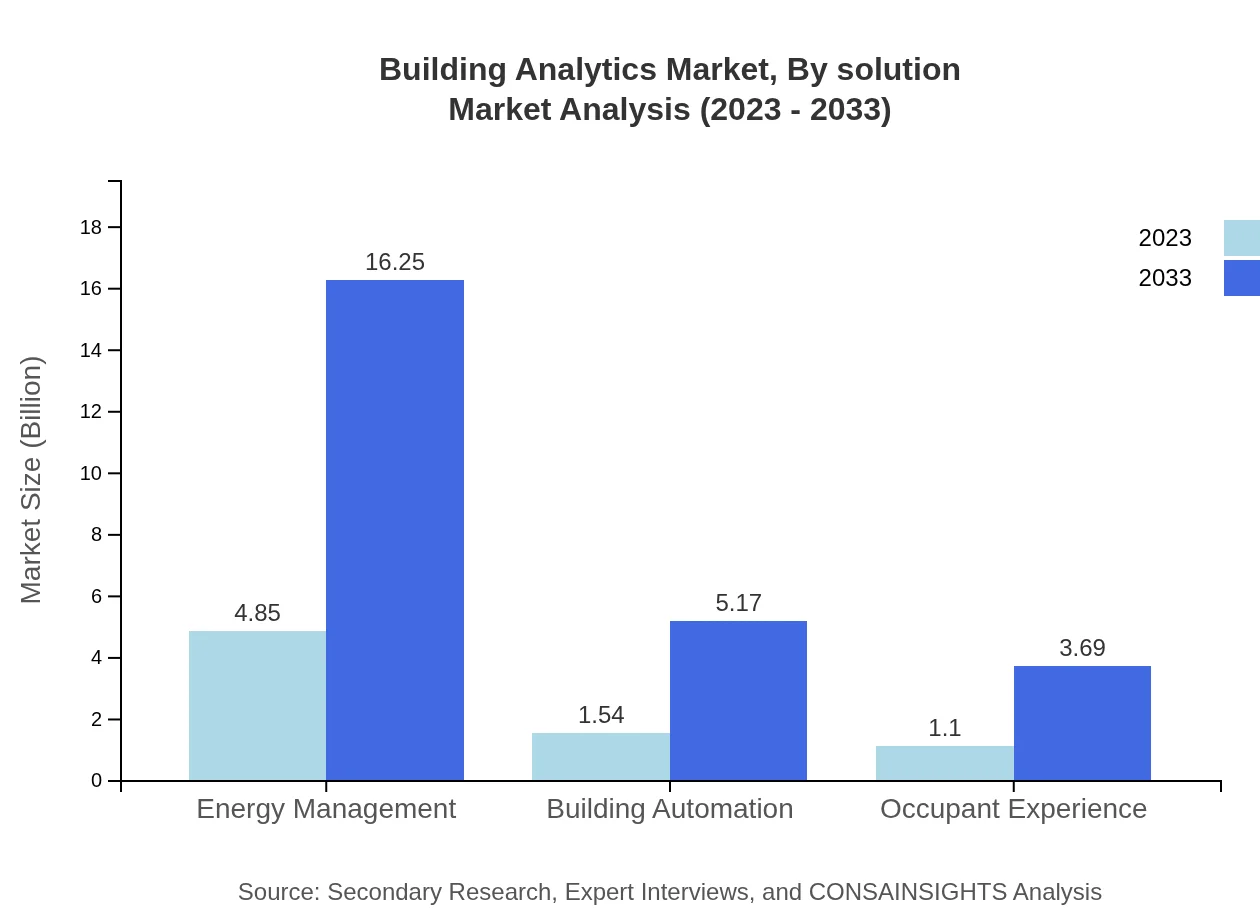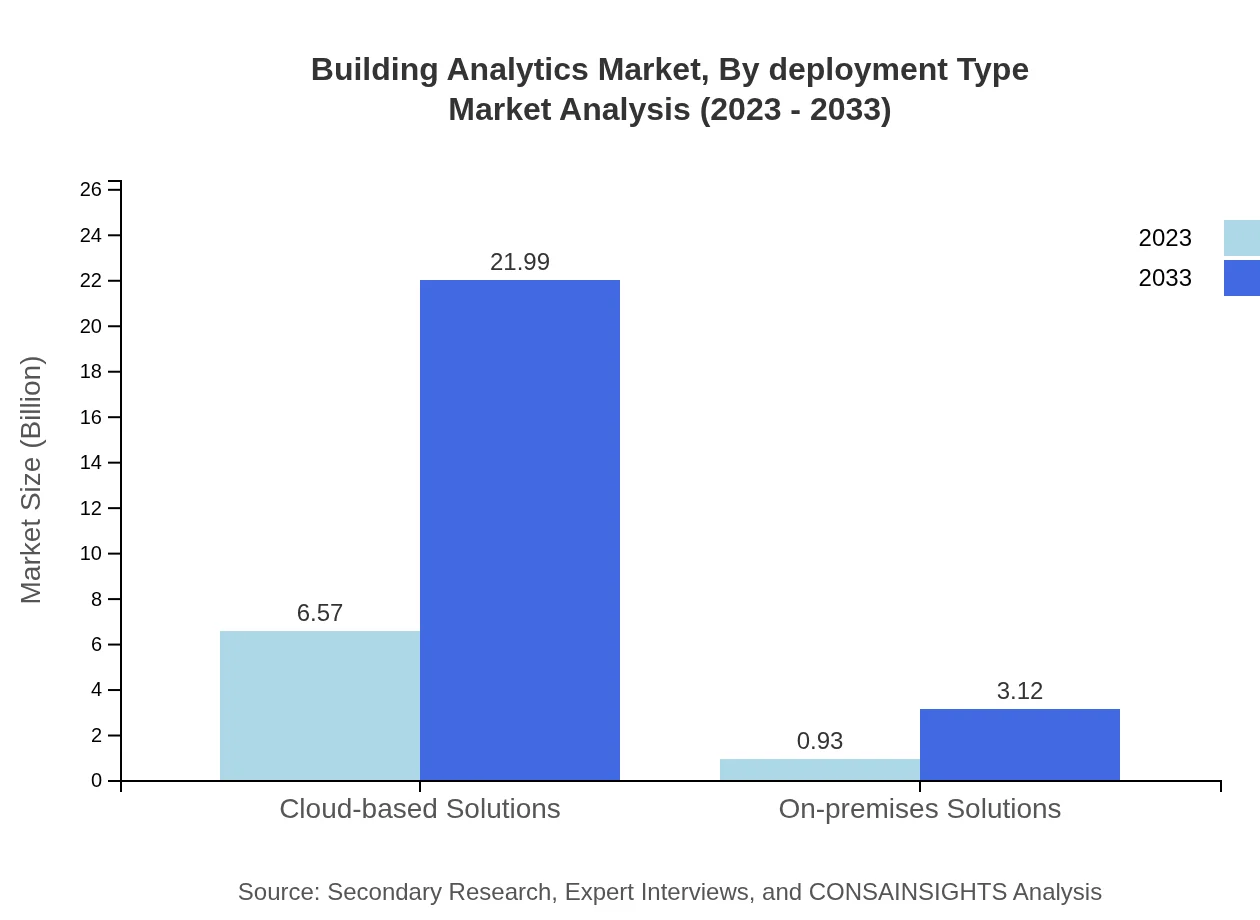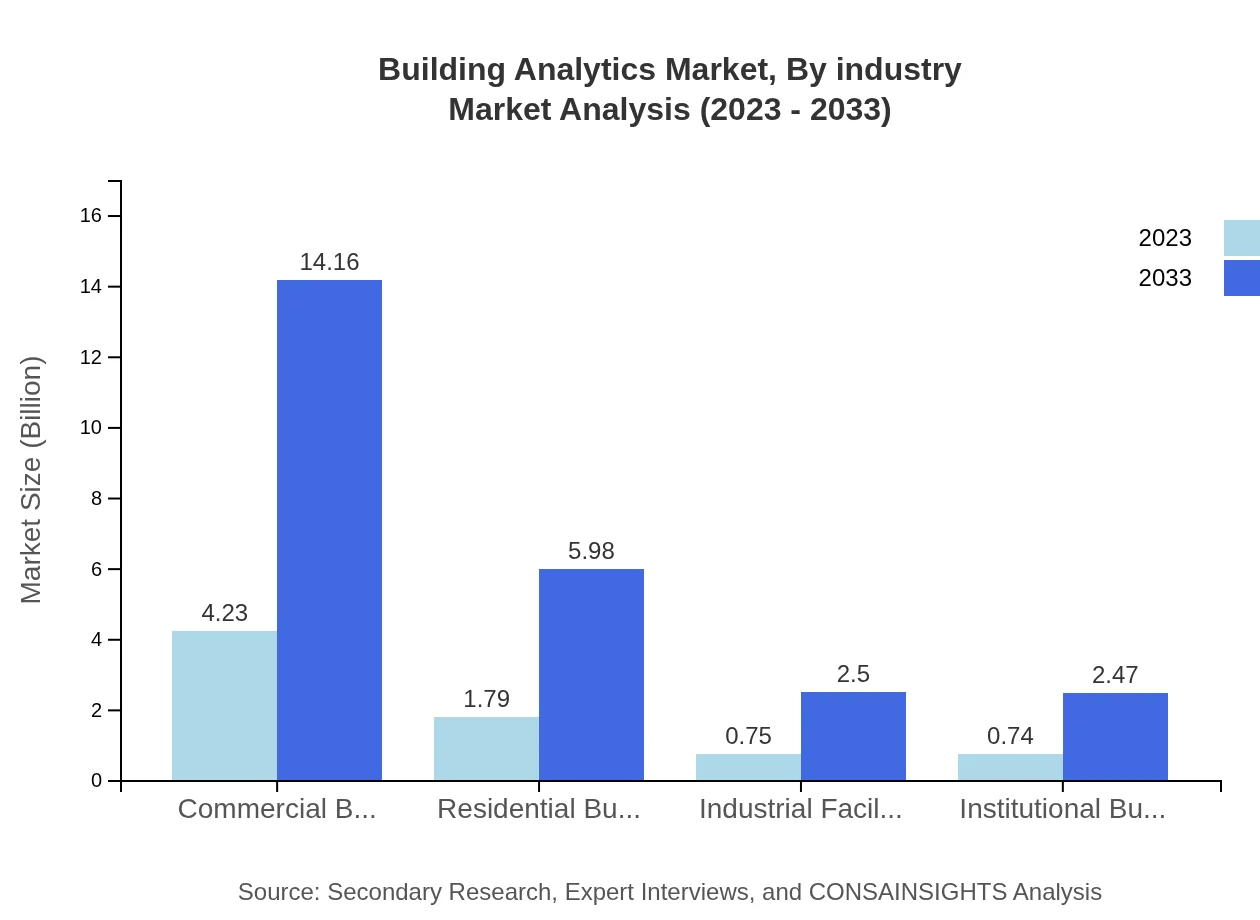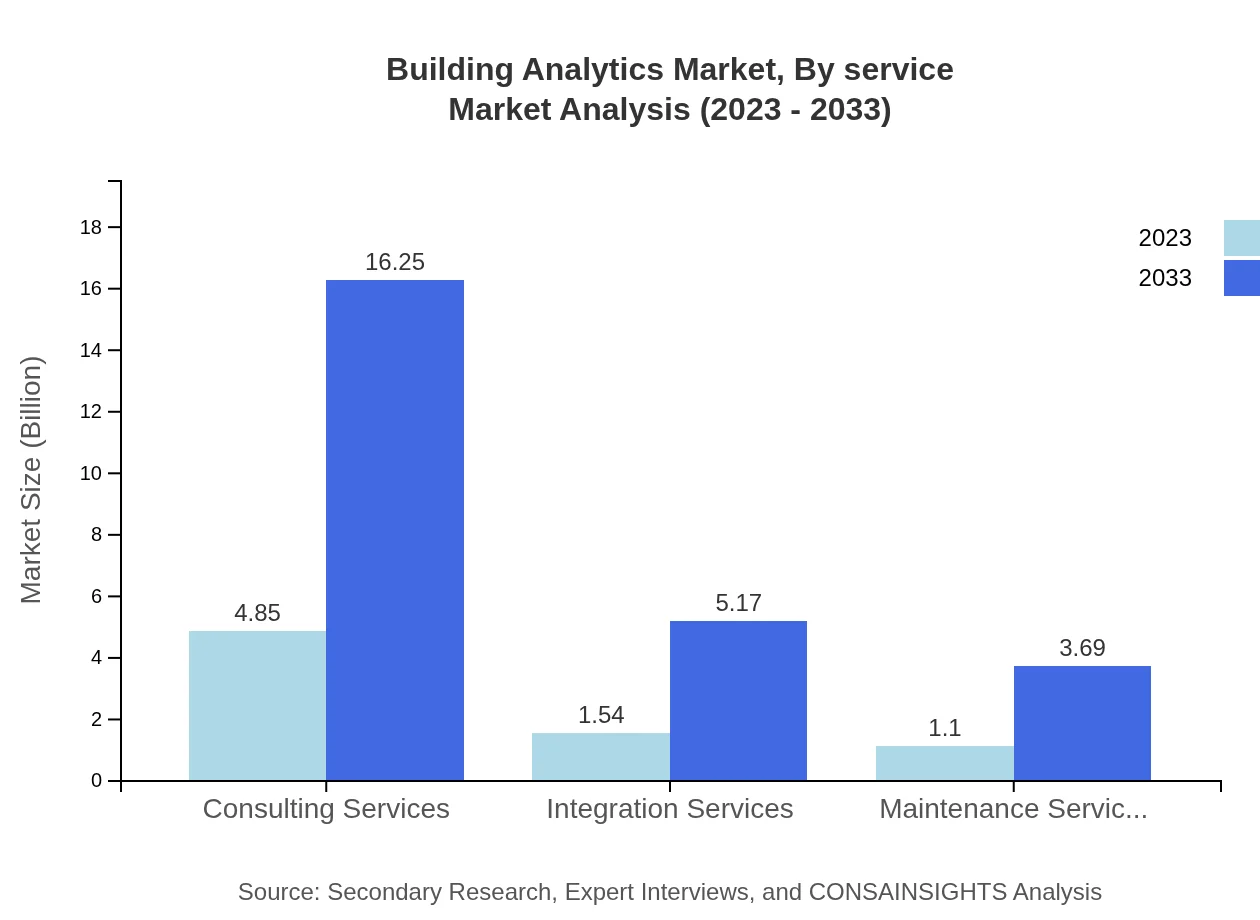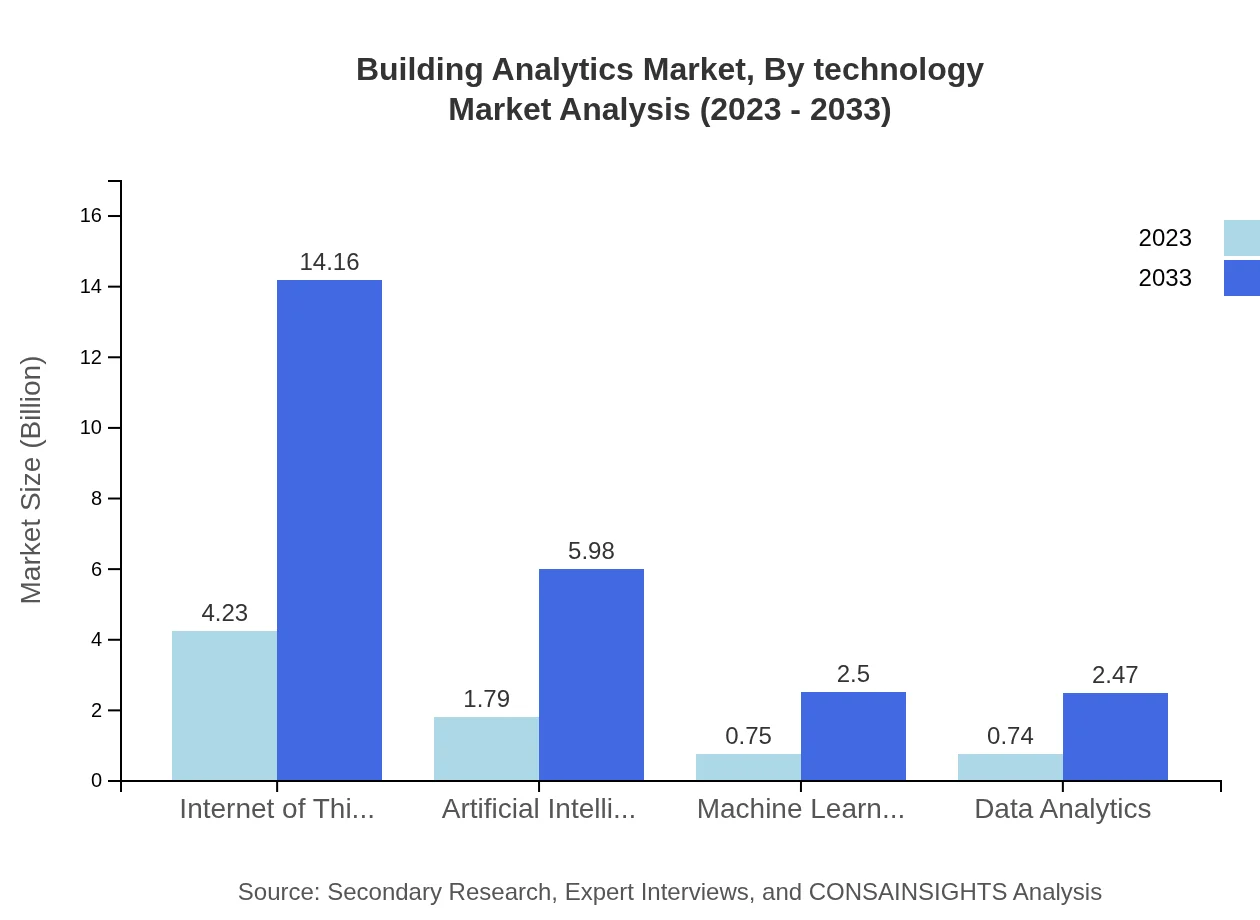Building Analytics Market Report
Published Date: 31 January 2026 | Report Code: building-analytics
Building Analytics Market Size, Share, Industry Trends and Forecast to 2033
This report provides an in-depth analysis of the Building Analytics market, covering trends, technologies, and forecasts for the years 2023 to 2033. It offers valuable insights into market dynamics, sizes, segmentation, and key players shaping the future of the industry.
| Metric | Value |
|---|---|
| Study Period | 2023 - 2033 |
| 2023 Market Size | $7.50 Billion |
| CAGR (2023-2033) | 12.3% |
| 2033 Market Size | $25.11 Billion |
| Top Companies | Schneider Electric, Johnson Controls, Honeywell , Siemens , IBM |
| Last Modified Date | 31 January 2026 |
Building Analytics Market Overview
Customize Building Analytics Market Report market research report
- ✔ Get in-depth analysis of Building Analytics market size, growth, and forecasts.
- ✔ Understand Building Analytics's regional dynamics and industry-specific trends.
- ✔ Identify potential applications, end-user demand, and growth segments in Building Analytics
What is the Market Size & CAGR of Building Analytics market in 2023 and 2033?
Building Analytics Industry Analysis
Building Analytics Market Segmentation and Scope
Tell us your focus area and get a customized research report.
Building Analytics Market Analysis Report by Region
Europe Building Analytics Market Report:
In Europe, the building analytics market is poised for substantial growth, moving from $2.52 billion in 2023 to $8.45 billion by 2033. A strong regulatory environment focusing on sustainability and energy efficiency, coupled with increased investments in smart technologies across different building sectors, is driving this growth. Countries such as Germany, France, and the UK are leading in their adoption of innovative building analytics solutions.Asia Pacific Building Analytics Market Report:
The Asia Pacific region is witnessing impressive growth in the Building Analytics market, with a market size of $1.34 billion in 2023, projected to reach $4.47 billion by 2033. This can be attributed to increasing urbanization, government initiatives towards smart city developments, and the adoption of IoT technologies in building management. Countries like China and India are especially prominent in this growth trend, seeking to enhance their energy efficiency and sustainability metrics.North America Building Analytics Market Report:
North America dominates the Building Analytics market with a market size of $2.62 billion in 2023, projected to reach $8.76 billion by 2033. The region benefits from stringent regulations promoting energy efficiency and a robust infrastructure geared towards adopting smart technologies. The United States and Canada are at the forefront, with significant investments in building automation and analytics solutions.South America Building Analytics Market Report:
In South America, the Building Analytics market is relatively nascent, valued at $0.41 billion in 2023 and expected to grow to $1.39 billion by 2033. The growth is driven largely by rising infrastructure projects and the need for improved energy management solutions amid increasing energy costs and environmental concerns. Brazil and Argentina are leading the charge with various smart building initiatives.Middle East & Africa Building Analytics Market Report:
The Middle East and Africa region holds great potential for the Building Analytics market, expanding from a market size of $0.61 billion in 2023 to $2.04 billion by 2033. Growth in this region is fueled by infrastructure investments, particularly in the UAE and Saudi Arabia, aiming to enhance smart city initiatives and energy management practices, responding to demands for sustainability and operational efficiency.Tell us your focus area and get a customized research report.
Building Analytics Market Analysis By Solution
The solution segment of Building Analytics comprises various components including Energy Management, Building Automation, Occupant Experience, and Data Analytics. Energy Management is a leading segment, valued at $4.85 billion in 2023 and projected to grow to $16.25 billion by 2033. Building Automation follows with increasing integration into facilities, contributing to overall operational efficiency as it transitions from $1.54 billion to $5.17 billion. The focus on enhancing occupant experience, particularly in commercial and residential settings, is reflected in its growth from $1.10 billion to $3.69 billion, signaling a shift towards generating smarter living environments.
Building Analytics Market Analysis By Deployment Type
Deployment types in Building Analytics are categorized into Cloud-based and On-premises solutions, with a significant preference for cloud solutions. Cloud-based solutions are expected to expand from $6.57 billion in 2023 to $21.99 billion by 2033, offering flexibility and scalability to organizations looking for innovative analytics approaches. In contrast, on-premises solutions, while growing from $0.93 billion to $3.12 billion, face challenges relating to implementation costs and maintenance.
Building Analytics Market Analysis By Industry
The Building Analytics market is applicable across diverse industries, including Commercial, Residential, Industrial, and Institutional sectors. Commercial buildings represent the largest share, growing from $4.23 billion in 2023 to $14.16 billion by 2033, focusing on operational efficiency and energy savings. Residential buildings are also on the rise, expected to move from $1.79 billion to $5.98 billion, reflecting an increasing trend of smart home technology adoption.
Building Analytics Market Analysis By Service
Services in the Building Analytics market are segmented into Consulting, Integration, and Maintenance Services. Consulting Services lead the market, valued at $4.85 billion in 2023 and expected to reach $16.25 billion in the forecast period. Integration Services also play a significant role, growing from $1.54 billion to $5.17 billion, providing essential support for technology deployment. Maintenance services are vital as they grow from $1.10 billion to $3.69 billion, emphasizing the importance of ongoing support for analytics solutions.
Building Analytics Market Analysis By Technology
Key technologies impacting Building Analytics include Internet of Things (IoT), Artificial Intelligence (AI), Machine Learning, and Cloud-based solutions. The IoT segment leads, growing from $4.23 billion in 2023 to $14.16 billion by 2033. AI and Machine Learning also show substantial growth, moving from $1.79 billion to $5.98 billion and $0.75 billion to $2.50 billion respectively. Cloud-based solutions remain integral, expected to grow considerably based on their capability to enhance data accessibility and analysis.
Building Analytics Market Trends and Future Forecast
Tell us your focus area and get a customized research report.
Global Market Leaders and Top Companies in Building Analytics Industry
Schneider Electric:
A global specialist in energy management and automation, Schneider Electric has positioned itself as a leader in building analytics by providing integrated solutions that optimize energy use and operational efficiency.Johnson Controls:
With a strong focus on smart buildings and energy efficiency, Johnson Controls integrates advanced building management systems to enhance operational performance and occupant satisfaction.Honeywell :
Honeywell's Building Analytics services utilize advanced technologies and data insights to provide solutions aimed at energy optimization, predictive maintenance, and enhancing building performance.Siemens :
Siemens leverages cutting-edge technologies to develop building automation and analytics solutions aimed at reducing energy consumption and enhancing intelligence in building operations.IBM:
IBM employs AI and data analytics in its building management solutions, empowering organizations to make data-driven decisions resulting in improved operations and energy efficiency.We're grateful to work with incredible clients.









FAQs
What is the market size of building Analytics?
The building analytics market is projected to reach approximately $7.5 billion by 2033, growing at a CAGR of 12.3% from its current size. This growth reflects increasing demand for efficient building management and energy optimization.
What are the key market players or companies in this building Analytics industry?
Key players in the building analytics industry include established technology firms and specialized startups. Major companies focus on innovative solutions in energy management, data analytics, and IoT services, driving competition and growth in the sector.
What are the primary factors driving the growth in the building Analytics industry?
Growth in the building analytics industry is driven by the need for energy efficiency, regulatory compliance, advancements in IoT technologies, and improved occupant experience. Additionally, the increasing integration of AI and machine learning enhances operational efficiency.
Which region is the fastest Growing in the building Analytics?
North America is the fastest-growing region in the building analytics market, with a projected growth from $2.62 billion in 2023 to $8.76 billion by 2033. Europe and Asia-Pacific also show significant growth rates in this sector.
Does ConsaInsights provide customized market report data for the building Analytics industry?
Yes, ConsaInsights offers customized market report data tailored to the specific needs of stakeholders in the building analytics industry, enabling clients to make informed business decisions based on precise insights.
What deliverables can I expect from this building Analytics market research project?
Deliverables include comprehensive market analysis reports, segment data, growth projections, regional insights, and strategic recommendations tailored to the building analytics industry, helping clients to identify opportunities.
What are the market trends of building Analytics?
Current trends in the building analytics market include increased adoption of cloud-based solutions, integration of AI and machine learning, and a focus on improving occupant experience through smart building technologies. Sustainability initiatives are shaping development.

